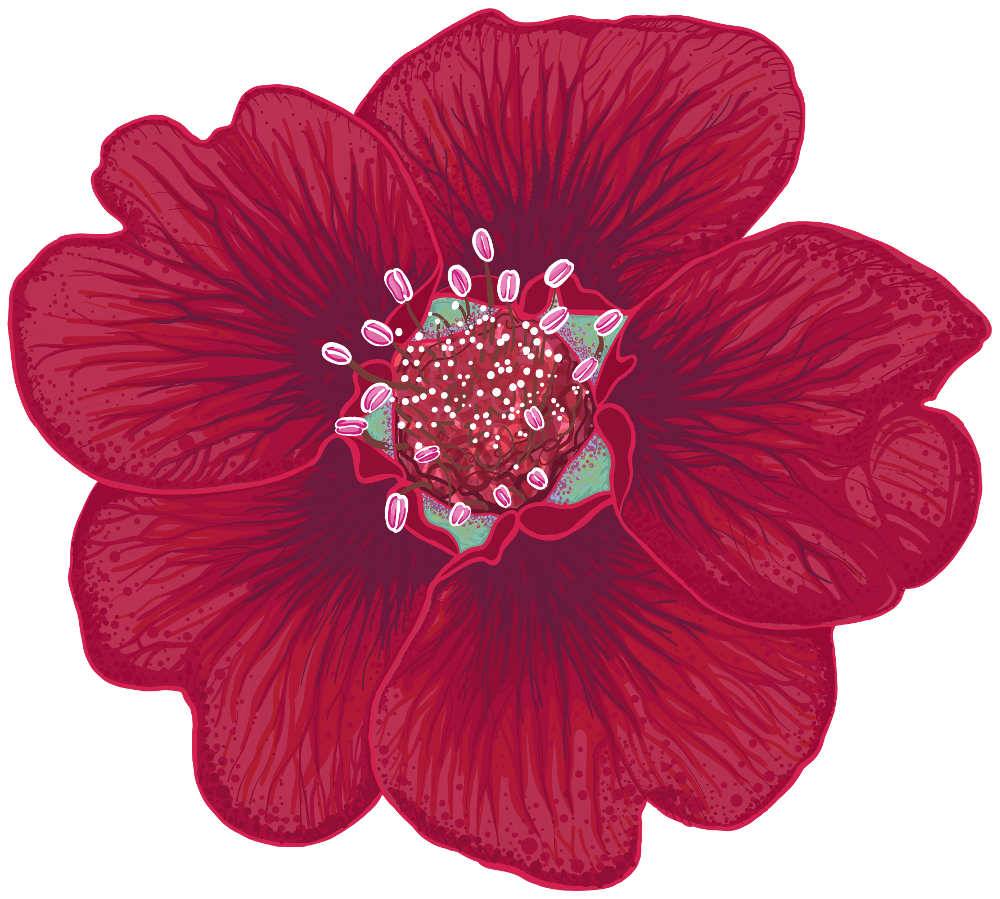Monthly programs for 2024 will be held on the third Friday of the month at 7:00 p.m. Whenever possible, programs will be hybrid, both live and via Zoom. Check for each program. When the program is live, come to Room 111 in WNMU’s Harlan Hall, at the corner of 12th and Alabama Streets, to attend in person. Gila Native Plant Society members will receive a Zoom link by email before the program; any others interested may request a link from gilanative@gmail.com. All are welcome.
Upcoming Programs
There will be no more programs this spring. We are working on the programs list for the fall. Please check back!
Past Programs
Friday, April 19, 2024, 7 p.m. - Evening Program: "Insect Galls of the Southwest" presented by Quin Baine, PhD student at University of New Mexico. https://youtu.be/kAp0LSyhGVI
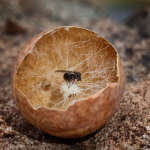 Galls are growths on plants caused by another organism and can be all sorts of shapes and forms. If you’ve seen them, you may have wondered: what is the function of these weird growths, and how can I identify them? Quin Baine, Museum Research fellow at the Museum of Southwestern Biology, will summarize the main groups of insect gall formers, their specialized relationships to plants, and how to recognize common galls of native plants of the southwest. Gain an insight into an unusual plant interaction, and hopefully be inspired to start identifying species of a cool and understudied group of plant-dependent animals.
Galls are growths on plants caused by another organism and can be all sorts of shapes and forms. If you’ve seen them, you may have wondered: what is the function of these weird growths, and how can I identify them? Quin Baine, Museum Research fellow at the Museum of Southwestern Biology, will summarize the main groups of insect gall formers, their specialized relationships to plants, and how to recognize common galls of native plants of the southwest. Gain an insight into an unusual plant interaction, and hopefully be inspired to start identifying species of a cool and understudied group of plant-dependent animals.
Quin Baine is a Museum Research fellow at the Museum of Southwestern Biology and a Ph.D. candidate in Biology at the University of New Mexico. She is an entomologist by training and has been working to establish a gall specimen collection at the museum. Her current research is on the highly diverse gall-associated communities of rubber rabbitbrush (Ericameria nauseosa) in the Southwest.
Friday, March 15, 2024, 7:00 p – Evening Program: “Phylogenetics and Population Genomics in the Milkwort genus Hebecarpa (Polygalaceae)”, presented by Christopher Muñoz, PhD student at UTEP. https://youtu.be/cHVADA2JYDI
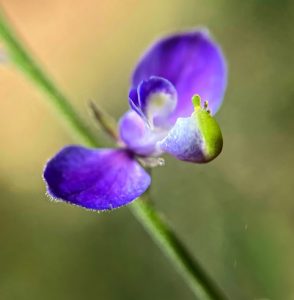 Phylogenetics tells us how organisms at different taxonomic scales are related and can elucidate the presence of cryptic species otherwise unknown to science—however, the phylogenetic perspective allows us to see beyond just questions of taxonomy. My research looks into the evolution of a highly unresolved genus of mostly mountain-dwelling plants that’s habitat affinities and character traits may allow us to better understand patterns of evolution as well as millions of years of paleoclimate history in North America.
Phylogenetics tells us how organisms at different taxonomic scales are related and can elucidate the presence of cryptic species otherwise unknown to science—however, the phylogenetic perspective allows us to see beyond just questions of taxonomy. My research looks into the evolution of a highly unresolved genus of mostly mountain-dwelling plants that’s habitat affinities and character traits may allow us to better understand patterns of evolution as well as millions of years of paleoclimate history in North America.
Christopher Joaquín Muñoz is a PhD candidate at The University of Texas at El Paso’s Ecology & Evolutionary Biology Program, where he works out of the Plant Evolution Lab of Dr. Michael Moody.”
Friday, February 16, 2024, 7:00 pm—Evening Program: “The History of the Silva Creek Botanical Garden” presented by Elroy Limmer and Betsy Kaido
To see the images shown, click on the link. We do not have a sound recording, but some explanatory captions were added:https://youtu.be/
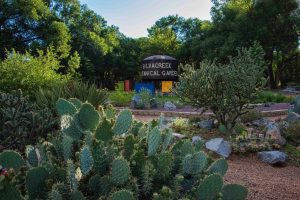
A view of Silva Creek Botanical Garden
Friday, January 19, 2024, 7:00 pm - Evening Program: “If You Plant It, They Will Come: Meet the bees in your neighborhood and their favorite native plants,” presented by Oliver Neria: https://youtu.be/WoFr2Ho_T2Y
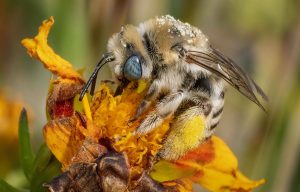
Melissodes Bee
This evening program was presented by Oliver Neria, PhD student at the University of Texas at El Paso, based on his research.
Oliver gave a brief overview of our native bees and their life histories, floral preferences, and nesting behaviors, as well as strategies that thoughtful gardeners can use to create useful bee habitat.
This program was via Zoom only.
November 17, 2023: “Rare thistles in the high Mogollon Mountains; an update on Graham’s Thistle,” presented by John Gorey: https://youtu.be/pjUcwQGaae8

Cirsium grahamii
While researching the rare Graham’s Thistle (Cirsium grahamii), John Gorey discovered another thistle that may be a species new to science. He followed up his previous sightings of Graham’s Thistle with surveys for the rare plant in new areas in 2023. He presented his findings (both plant and pollinator) from 2022 and 2023 as well as a new exciting, rare plant expedition in the high elevation Mogollon Mountains in 2023.
John Gorey received his bachelor degree in wildlife biology from Murray State University in 2008. Since graduating he has spent the last 14 years as a wildlife biologist studying birds, insects, plants, and habitats across the US from Alaska to Maine and many places between. Since moving to New Mexico in 2017 he has focused his research efforts on Southwestern New Mexico.
October 20, 2023: “Delinquent late-night pollinators: A story about nectar bats, agaves, and what’s happening in the Gila”, presented by Mallory Davies: https://youtu.be/TettC7-JZJM
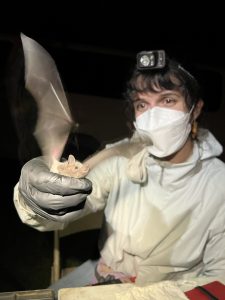
Mallory and Bat
The shape, color, and timing of nectar release of agave flowers indicates a co-evolution and mutualistic relationship with the nectar bats that pollinate it. Agave nectar is thought to be the only known plant food source for nectar-feeding bats in New Mexico. However, nectar bats are found visiting hummingbird feeders in Silver City late into the fall, months after local agaves have finished flowering. Mallory is investigating the factors that influence this timing mismatch. She discussed the theory behind the mutualistic relationship and co-evolution of nectar bats and agave, current research happening in the area, preliminary findings, and how GNPS members can get involved.
Mallory Davies is a fourth year PhD student in the Department of Fish, Wildlife, and Conservation Biology at Colorado State University and is associated with the Stoner Lab at the University of Arizona. Mallory’s field team is based out of Hachita, where they study New Mexico’s largest known lesser long-nosed bat roost site located in the Big Hatchet Mountains. Mallory has since expanded her research into residential sites in New Mexico and Arizona, including Silver City.
June 16, 2023: “Wetland Jewels of the Gila”, presented by Steven Fry, Amigos Bravos Policy and Project Specialist: https://youtu.be/I3irnzrlidM

A wetland in the Gila Wilderness
Steven presents on Amigos Bravo’s Wetland Jewels project in the Gila, which combines local watershed users’ input on desired watershed functions with high-detailed mapping analysis to identify keystone wetlands for restoration and protection. By investing in these areas, they hope to promote resiliency of the watershed for downstream communities and wildlife.
May 19, 2023: “Updates on the floristic diversity of alpine ecosystems in the southern Rocky Mountains” presented by Hannah Marx, Assistant Professor and Herbarium Curator, University of New Mexico: https://youtu.be/7IZT07RYKlE

Dr. Marx in the field
Dr. Marx shares progress on her research program focused on understanding the floristic diversity of alpine flora in western North America.
April 21, 2023: “Tales of Three Rivers,” presented by Mary Harner, University of Nebraska, Kearney – zoom only
A view of the Gila River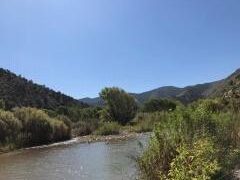
To see the recording of this meeting, please email us at gilanative@gmail.com with your request.
Mar 17, 2023: “Boston Hill Wildflowers 2022: The Overlooked, the Unexpected, and the Seldom Seen” presentation by Andrew Tree, Environmental Photographer
Boston Hill, a historic Silver City mining district, is now a 500+ acre open space. Andrew presented his photographs, taken Feb–Nov 2022, as part of a mission to share widely the beauty of those wildflowers that are so often overlooked.
On Instagram: andrewtreeflora https://www.instagram.com/andrewtreeflora/
On Facebook: Grant County Flora https://www.facebook.com/thebeautyinsmallthings
Feb 17, 2023: “Native Trees for Silver City: Ten Best Practices” with Ann Audrey, environmental consultant
Ann discussed ten best practices for using native trees in urban environments to improve climage change resilience. Native trees are well adapted to our southwest climate and weather: they have endured extremes of heat, drought and cold events over countless years and still thrive. With more extreme weather events, adding native southwest trees into urban areas will help secure a shady future. Learn ten best practices to help select, plant, water and care for native trees to support their health and longevity in urban environments.
Watch the recording here: https://youtu.be/S4CKxXAV6ak
See Ann’s Useful Resources Document here: Useful Resources for Silver City Climate Resilience
Jan 20, 2023: “Knowing the Sunflower Family in New Mexico” with Richard Spellenberg
Watch the recording here: https://youtu.be/a16lTRcr_D0
Older Programs and links to their recordings
November 18, 2022: “Cirsium grahamii: A Rare Purple Jewel in the Gila Wilderness.” https://youtu.be/ZjcLYrFhz7A?si=uvibSJEjXFaQTZ-a
May 20, 2022: “Penstemons – Some of the Most Beautiful Flowers in the World” – presentation by Russ Kleinman. https://youtu.be/a90T3JdIhRw?si=lOMkxERf_JYXvS-w
April 15, 2022: “The Ecology of Herbal Medicine ” – presentation by Dara Saville. https://youtu.be/o8XdNANDamA?si=4_midaIVKyueC_xH
March 18, 2022: “Moths of the Gila National Forest – Update” – presentation by Ronald Parry. https://youtu.be/eg78rZxsLHY?si=GWM4WfVR19RTTpsV
February 18, 2022: “Spring Blooms in the Southwest: Not Just Creosote Bush” – presentation by Donna Stevens. https://youtu.be/IHLsbbINFmY?si=Ow4DviO04ZvmkEt3
January 21, 2022: “The Fabulous Flora of City of Rocks State Park” – presentation by William (Bill) Norris. https://youtu.be/NBjlCa5WdQ0?si=1d0Exkzkq6NDR7rX
November 19, 2021: “Post-fire Status of Goodding’s onion (Allium gooddingii) in New Mexico” – presentation by Daniela Roth, New Mexico State Botanist. https://youtu.be/GBgjlLzas-0?si=zh5HD6fT6CV65vKe
April 17, 2020: “Lichens for Beginners” – presentation by Russ Kleinman. https://youtu.be/vOXLrGAERxU?si=WN-I8KfkYCLppTJa
